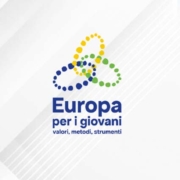SHINE – mainstreaming Systems tHinking In Natural sciences and Environmental education
SHINE – mainstreaming Systems tHinking In Natural sciences and Environmental education
Agreement number: 2023-1-DE03-KA220-SCH-000158255
Program and Call
ERASMUS PLUS – Call 2023 Round 1 KA2
KA220- SCH – Cooperation partnerships in School Education
Ongoing project
Short description
Education for sustainable development gives learners of all ages the knowledge, skills, values and agency to address interconnected global challenges including climate change. The call for teachers is to develop strategies, tools and methodologies to achieve such key competencies to address the required complexity. Managing and solving sustainability problems require people with systemic competences who are able to see the whole in the individual, presenting a breadth of vision for a complex world. Since Systems Thinking (ST) is one of the key competencies in the education for sustainable development, it is crucial to train in-service teachers on the ST approach to give them the possibility to implement ST at school in science education classes. The SHINE project aims at bringing the ST approach in Natural Science education involving in-service teachers and students in the target age of 8-16 years old. SHINE aims at introducing the ST approach at school by training in-service teachers and by developing, validating and testing innovative didactic tools to effectively introduce and practice ST with students in natural science and ecology education. ST offers a new language in understanding how the world works, it enables students to see the parts of the whole and the network of relationships simultaneously, and consequently it tries to reveal the structure that creates change by questioning how events occur over time.
Objectives
SHINE’s overall objective is to prepare future citizens to face climate change challenges by promoting the introduction and mainstream of ST skills in natural science education. To reach this objective, SHINE sets 5 specific sub-objectives:
- Educate in-service teachers on ST principles and how to apply them in natural science;
- Support students in developing ST approach by introducing game-based learning and innovative didactics approach in science education;
- Sustain scientific skills and the deep learning of complex topics such as ecosystems and climate change;
- Promote collaboration among different school grades (8-16 y.o.)
Main activities
– Development of a training course for in-service teachers replicated in each partner’s country and involving at least 25 natural science teachers.
– Design of a serious game (digital/board with different levels of difficulties accordingly with target age) to support students in practicing and experimenting ST applied to climate change issues.
– Creation of a digital toolkit containing specific didactic modules to introduce ST at school in natural science classes, assessment tools to evaluate the students’ improvement in ST reasoning in a long term perspective;
– Organisation of a set of digital and in-person transnational events to boost both students and teachers from partners’ countries to cooperate in understanding and finding possible common answers to the climate change effects occurring now and in a future perspective.
Expected results
- Effectively supporting teachers in implementing and assessing ST at school with students of different ages by training them on the approach and co-producing specific didactic tools.
- Applying ST in natural science and sustainability disciplines for assessing the student’s progress in a long-time perspective.
- Enhancing the promotion of more engaging didactics and boosting the active involvement of students by cooperation “inter pares”
- Facilitating and mainstream the introduction of ST into education as a way to deepen science principles and especially as a lens for understanding problems such as climate change and environment protection.
Coordinator
Hochschule RheinMain (DE)
Partnership
– InEuropa Srl (IT)
– Libera Università di Bolzano (IT)
– Tallin University (EE)
– Virtual Campus Lda (PT)
Duration
The project will last 36 months (1st October 2023 – 30th September 2026)
Budget
The grant is € 400.000,00








